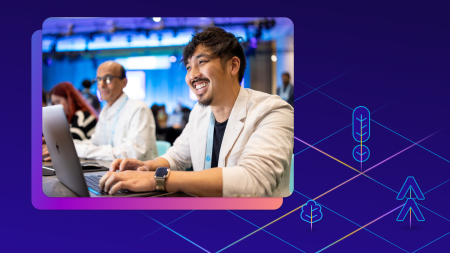

Unlock the Power of Your Salesforce Data with Analytics
Learn how to make smarter decisions across your workflows and act on Salesforce data with a unified analytics solution. Watch live product demos, customer stories, and get practical insights from Salesforce analytics experts.
Featured Episodes

- 17 Episode Series
Unlock the full potential of AI with Agentforce at World Tour Boston. Learn how to build AI agents d…
Unlock the full potential of AI with Agentforce at World Tour Boston. Learn how to build AI agents d…


- 1 Episode Series
Experience what Agentforce can do for your business. Tune in to watch our main keynote and discover…
Experience what Agentforce can do for your business. Tune in to watch our main keynote and discover…


- 32 Episode Series
국내 혁신 기업의 생생한 성공 여정과 미래 비전을 통해, AI 에이전트가 열어갈 무한한 가능성에 대한 영감을 얻어보세요. 인간과 공존하며 협력하는 AI 에이전트의 시대, 디지털…
국내 혁신 기업의 생생한 성공 여정과 미래 비전을 통해, AI 에이전트가 열어갈 무한한 가능성에 대한 영감을 얻어보세요. 인간과 공존하며 협력하는 AI 에이전트의 시대, 디지털…


- 17 Episode Series
Watch the best of Agentforce World Tour London and discover how Agentforce and the #1 AI CRM can hel…
Watch the best of Agentforce World Tour London and discover how Agentforce and the #1 AI CRM can hel…


- 10 Episode Series
Découvrez les dernières solutions Salesforce pour réinventer l’expérience client et accélérer le suc…
Découvrez les dernières solutions Salesforce pour réinventer l’expérience client et accélérer le suc…


- 23 Episode Series
Unlock the full potential of AI with Agentforce at World Tour NYC. Learn how to build AI agents desi…
Unlock the full potential of AI with Agentforce at World Tour NYC. Learn how to build AI agents desi…


- 30 Episode Series
Discover how AI-driven innovation is transforming the public sector and nonprofits. Gain insights fr…
Discover how AI-driven innovation is transforming the public sector and nonprofits. Gain insights fr…


- 5 Episode Series
Catch the best of Agentforce World Tour Sydney on-demand.
Catch the best of Agentforce World Tour Sydney on-demand.

World Tour
Recent Events
Questions about Salesforce+? We have answers.
What is Salesforce+?
Salesforce+ is the free streaming service for business. It’s a place to watch live events that help you grow your career and company, on your own time. Salesforce+ is produced by Salesforce, so you’ll find our company’s big events like Dreamforce here — as well as virtual learning made for your role and industry. Everything is free and unlimited.
What can I watch on Salesforce+?
You can watch all kinds of helpful, entertaining, and inspiring videos on Salesforce+. One thing our members love is our events. Whether you catch them live or on demand, Salesforce+ gives you a free front-row seat to our biggest global events, like Dreamforce, TDX, Tableau Conference, and Connections. These entertaining business shows star people in roles and industries just like yours, giving you fresh ideas for how to grow your company and do better work. The best part is, it’s all free.
Do I have to pay for Salesforce+?
Salesforce+ is free. Watch any Salesforce+ events or series at no cost. To enjoy unlimited free access to our entire library of videos, become a member by signing up for Salesforce+ with a Trailblazer account. To join us for virtual events like Dreamforce or Connections, you need to create your own Trailblazer account (it’s free!).
What is a Trailblazer account?
Your Trailblazer account gives you access to a unified profile across the Salesforce ecosystem and allows you to manage your settings and access across multiple Salesforce sites.
How do I sign up to register for live and on-demand events, like Dreamforce?
Sign up or log in to your Trailblazer account and complete a few additional details to watch Salesforce+ events live and on demand. We recommend preregistering for all events on Salesforce+ to get your own personalized journey, reminders, recommendations, and more.
Do I need to be a Salesforce customer to watch Salesforce+?
You don’t need to be a Salesforce customer to watch Salesforce+. Our virtual learning is open to everyone.

























